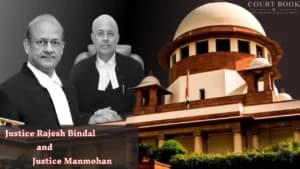The Delhi High Court Bar Association (DHCBA) has strongly criticised the Enforcement Directorate (ED) for issuing summons to Senior Advocate Arvind Datar. The move was in relation to privileged legal communications between Datar and his client, which the legal community considers a direct attack on professional freedom and client-lawyer confidentiality.
The Delhi High Court Bar Association said – “Such attempts not only undermine the freedom of the profession but also seriously impact the constitutional rights to be defended by counsel of one’s choice and to a fair trial”
This statement by the DHCBA adds to the growing concern in the legal fraternity. Earlier, the Supreme Court Advocates-on-Record Association and the Madras Bar Association had also condemned the ED's action against Datar.
Read also: Supreme Court to Hear Tamil Nadu ADGP Jayaram’s Plea Against HC Arrest Order
The issue arose from a recent report by The Economic Times, which revealed that the Enforcement Directorate had summoned Arvind Datar in connection with the legal advice given to Care Health Insurance. The case was related to the employee stock ownership plan (ESOP) allotment to former Religare Enterprises chairperson Rashmi Saluja.
This unprecedented move of summoning a senior lawyer to give a professional legal opinion was seen as an encroachment by the ED. According to sources, the summons were later withdrawn, but not before it triggered widespread protests and condemnation.
Read also: Supreme Court grants 7-day stay on demolition of Thane dargah, allows plea to recall Bombay HC order
“Interference in privileged communications between lawyer and client is a violation of fundamental rights and sets a dangerous precedent,” - commented senior legal members after the incident.
The DHCBA and other associations believe that such interference threatens the right to legal representation and impedes the administration of justice, which are the cornerstones of the Indian legal system.
The legal community continues to demand accountability and respect for the sanctity of professional privilege. This incident has reignited debate about institutional overreach and the protection of legal ethics in investigative proceedings.
Read also: Supreme Court grants anticipatory bail to former Nagaland judge accused of misusing bail money















